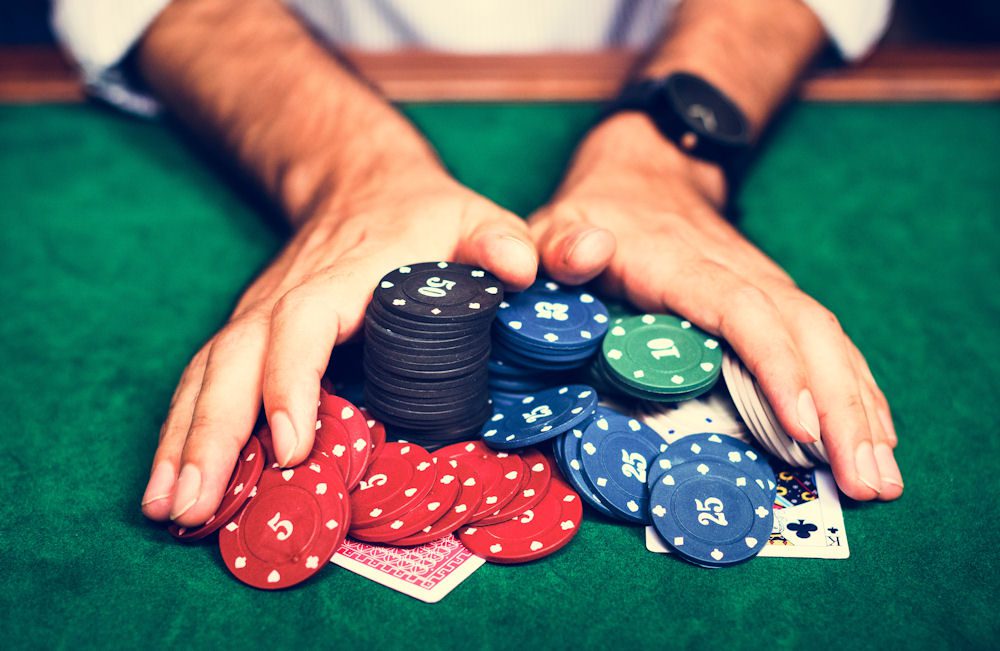In recent years, the issue of gambling addiction has become a growing concern in various parts of the world. The allure of the adrenaline rush, the thrill of the risk, and the potential for a big win can be enticing. However, what many people fail to realize is the impact that gambling can have on the brain, and how it can lead to addiction and various psychological and physiological effects.
Our substance abuse treatment at Northern Illinois can provide support for you or a loved one struggling with addiction. Break the cycle of substance abuse starting today.
Gambling Addiction in Illinois
One area where gambling addiction is prevalent is in the state of Illinois. With numerous casinos and gambling establishments, residents often find themselves drawn into the allure of the games. The easy access and the potential for significant financial gain can quickly turn into a downward spiral. The need for gambling addiction treatment centers in Illinois has become ever more apparent.
Illinois is home to several major gambling hubs, including the bustling city of Chicago and the popular tourist destination of Peoria. These cities offer a wide array of gambling opportunities, from traditional casinos to racetracks and even online betting sites. The constant exposure to these options can make it challenging for individuals struggling with gambling addiction, such as sports gambling addiction or slot machine addiction, to resist the temptation to place bets.
Furthermore, the state government of Illinois has recognized the growing issue of gambling addiction and has taken steps to address it. Initiatives such as increased funding for addiction treatment programs in Illinois and public awareness campaigns have been implemented to help combat the negative effects of compulsive gambling. Despite these efforts, the battle against gambling addiction in Illinois continues as individuals and families grapple with the devastating consequences of excessive gambling behavior.
Types of Gambling Addiction

Gambling addiction is not a one-size-fits-all issue. Different individuals are drawn to different types of gambling activities. Some individuals struggle with slot machine addiction, others with poker or blackjack, and some with sports gambling addiction. Understanding the various types of gambling addiction is crucial in developing targeted treatment approaches to help those struggling with this issue.
Another common form of gambling addiction is sports gambling addiction. Sports gambling addiction often involves individuals placing bets on various sports events, from football and basketball to horse racing and boxing. The thrill of predicting the outcome of a game and the potential monetary reward can be highly enticing for those with a predisposition to gambling addiction.
Furthermore, lottery addiction is a prevalent issue that affects many individuals worldwide. The allure of buying a ticket and dreaming of hitting the jackpot can be addictive for some, leading to compulsive and excessive spending on lottery tickets. This form of gambling addiction can have serious financial consequences and can quickly spiral out of control if left unchecked.
Seeking help from our therapy services at Northern Illinois Recovery is an effective first step to overcoming gambling addiction. Don’t hesitate to seek help from our professional treatment center today.
Understanding the Effects of Gambling on the Brain

The act of gambling triggers various chemical reactions in the brain that contribute to addiction. One key neurotransmitter involved is dopamine. Dopamine is responsible for the feelings of pleasure and reward. When an individual gambles and wins, dopamine floods the brain, creating a pleasurable sensation that often leads to compulsive behavior. Over time, the brain becomes dependent on this dopamine rush, leading to addiction.
In addition to dopamine, another neurotransmitter that plays a crucial role in gambling addiction is serotonin. Serotonin is known as the “feel-good” neurotransmitter and is involved in regulating mood and social behavior. Studies have shown that individuals with gambling addiction often have imbalances in their serotonin levels, which can contribute to feelings of anxiety and impulsivity, further fueling their addictive behavior.
Furthermore, the prefrontal cortex, the part of the brain responsible for decision-making and impulse control, also changes individuals with gambling addiction. Chronic gambling can lead to structural and functional alterations in the prefrontal cortex, making it harder for individuals to resist the urge to gamble despite negative consequences.
This impairment in the prefrontal cortex can perpetuate the cycle of addiction and make it challenging for individuals to break free from compulsive gambling behaviors. Cognitive behavioral therapy (CBT) can help reverse the effects of addiction on the brain.
Dopamine and the Addiction Cycle
The addictive nature of gambling can be attributed to the dopamine-driven addiction cycle. Initially, an individual experiences a surge of dopamine when they win, reinforcing the behavior and prompting them to continue gambling. However, as the addiction progresses, the brain becomes desensitized to the dopamine release, requiring higher and higher levels of stimulation to achieve the same level of pleasure. This leads to a vicious cycle where the individual gambles more frequently and places bigger bets in an attempt to replicate the original high.
Furthermore, dopamine is not only involved in the pleasure aspect of gambling addiction but also plays a crucial role in decision-making. Studies have shown that individuals with gambling disorders often exhibit altered dopamine levels in the brain, affecting their ability to make rational choices. This impairment in decision-making can further perpetuate the addiction cycle, as individuals may struggle to assess risks accurately and control their impulses when it comes to gambling.
Moreover, the impact of dopamine on the addiction cycle extends beyond just gambling. It is a neurotransmitter that plays a key role in various aspects of human behavior, including motivation, reward processing, and movement. Understanding the intricate interplay between dopamine and addiction is essential in our comprehensive individual therapy program for people struggling with gambling disorders and other forms of addiction.
Factors Contributing to Gambling Addiction
While dopamine plays a significant role in the addiction cycle, it’s important to note that gambling addiction is influenced by various individual and environmental factors. Some individuals may have a genetic predisposition to developing addiction, while others may turn to gambling as a means to escape stress or cope with emotional distress. The availability and accessibility of gambling opportunities also contribute to the development of addiction.
Moreover, societal norms and cultural attitudes toward gambling can shape an individual’s perception of this behavior. In some cultures, gambling may be seen as a harmless form of entertainment, while in others, it may be heavily stigmatized. These differing cultural perspectives can impact an individual’s likelihood of developing a gambling addiction.
Furthermore, psychological factors such as personality traits and mental health conditions can also play a role in the development of gambling addiction. Individuals with impulsive tendencies or a history of trauma may be more susceptible to developing problematic gambling behaviors. Additionally, co-occurring disorders such as depression or anxiety can exacerbate gambling addiction. Learn how our dual-diagnosis treatment program in Illinois can help.
Gambling and Substance Abuse
Another aspect worth exploring is the connection between gambling addiction and substance abuse. Studies have shown that individuals struggling with gambling addiction are more likely to engage in substance abuse as well. The combination of these two addictions can compound the negative effects on the brain and overall health of the individual.
It is important to note that the relationship between gambling addiction and substance abuse is complex and multifaceted. Some individuals may turn to substances as a way to cope with the stress and anxiety that often accompany compulsive sports gambling addiction. On the other hand, substance abuse can also lower inhibitions and impair judgment, making individuals more susceptible to engaging in risky behaviors such as slot machine addiction.
Furthermore, both gambling addiction and substance abuse can have serious financial implications. Individuals struggling with these dual addictions may find themselves in a cycle of debt and financial instability, as they prioritize their addictive behaviors over financial responsibilities. This can lead to a range of negative consequences, including strained relationships, legal troubles, and an overall decline in quality of life.
Psychological and Physiological Effects of Gambling Addiction
Gambling addiction not only affects the brain but also has a significant impact on one’s psychological and physiological well-being. The constant stress of financial strain, broken relationships, and legal issues can lead to mental health disorders such as anxiety and depression. Physically, the lack of sleep, poor nutrition, and neglect of self-care further compound the negative effects.
Furthermore, the psychological toll of sports gambling addiction or slot machine addiction can manifest in various ways, including feelings of guilt, shame, and low self-esteem. Individuals may experience a sense of powerlessness and hopelessness as they struggle to control their impulses and behavior. This can lead to a cycle of self-destructive patterns that are difficult to break without help from gambling addiction therapists.
On a physiological level, the body’s response to chronic stress from gambling addiction can result in a weakened immune system, increased risk of cardiovascular disease, and other serious health complications. The release of stress hormones such as cortisol and adrenaline in response to constant anxiety and financial pressure can put a significant strain on the body over time, leading to long-term health issues.
Seek Help for Gambling Addiction at Northern Illinois Recovery Center
Fortunately, help is available for those struggling with gambling addiction. Northern Illinois Recovery Center is a premier addiction treatment center specializing in gambling addiction recovery. Our team of experienced professionals provides comprehensive, personalized treatment plans to address the underlying causes and effects of gambling addiction. Through therapy, support groups, and holistic approaches, individuals can regain control of their lives and break free from the cycle of addiction.
While the allure of gambling can be hard to resist, it’s essential to be aware of the potential consequences. Understanding the effects of gambling on the brain helps shed light on the severity of this addiction. Contact us to reclaim your life and find healthier ways to experience joy and fulfillment without the detrimental effects of gambling.




